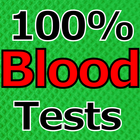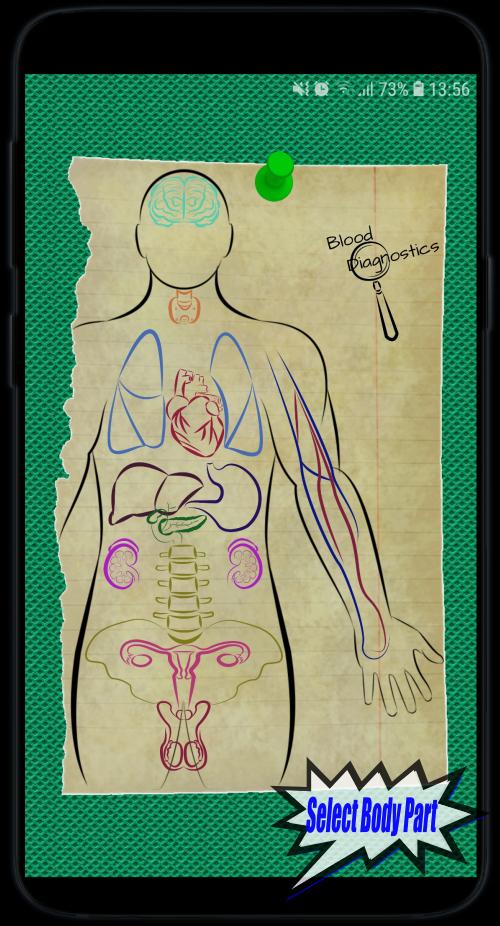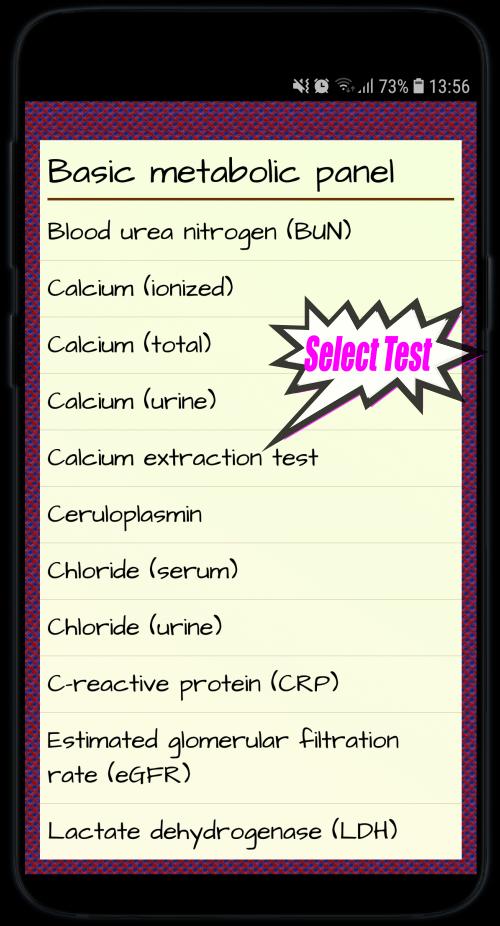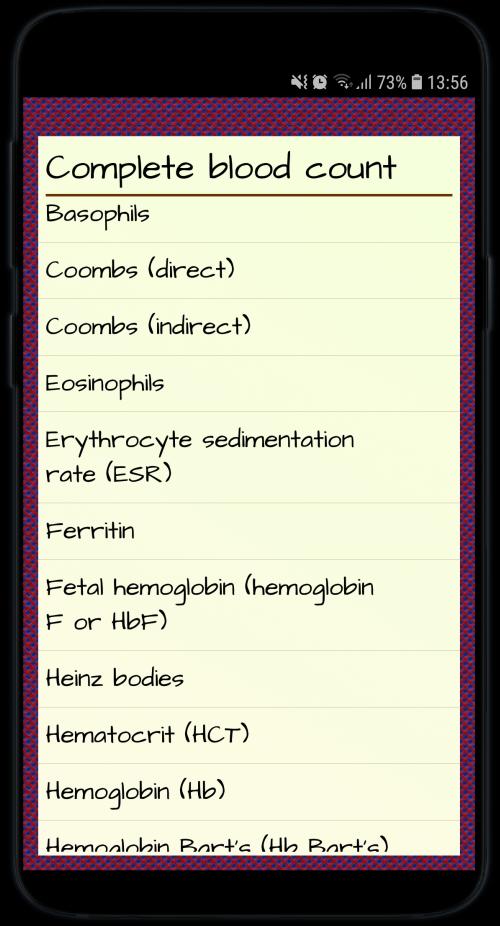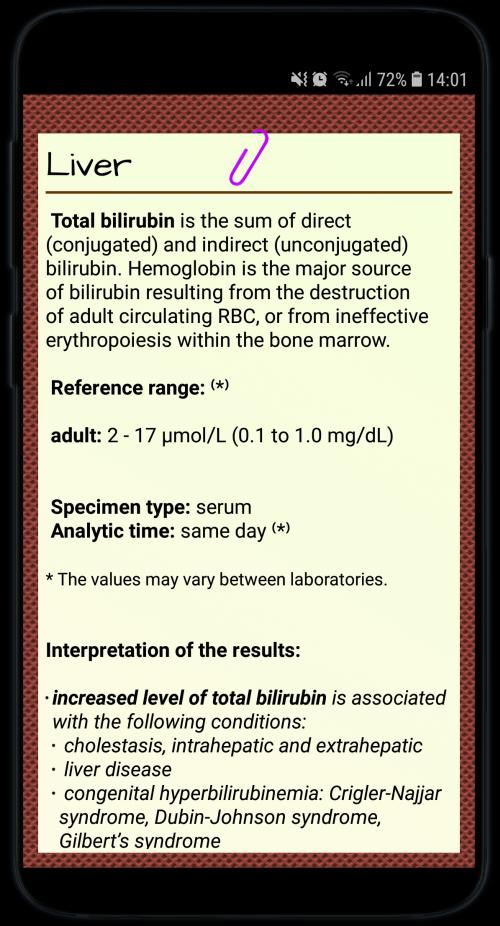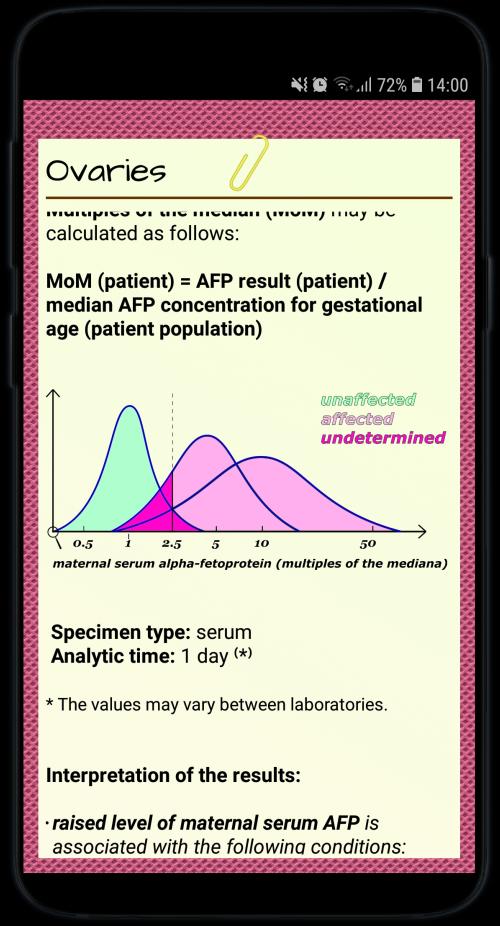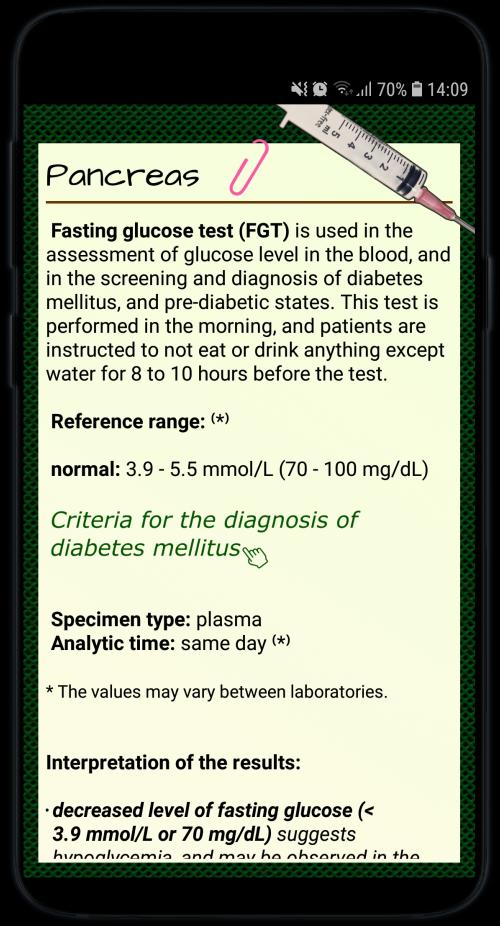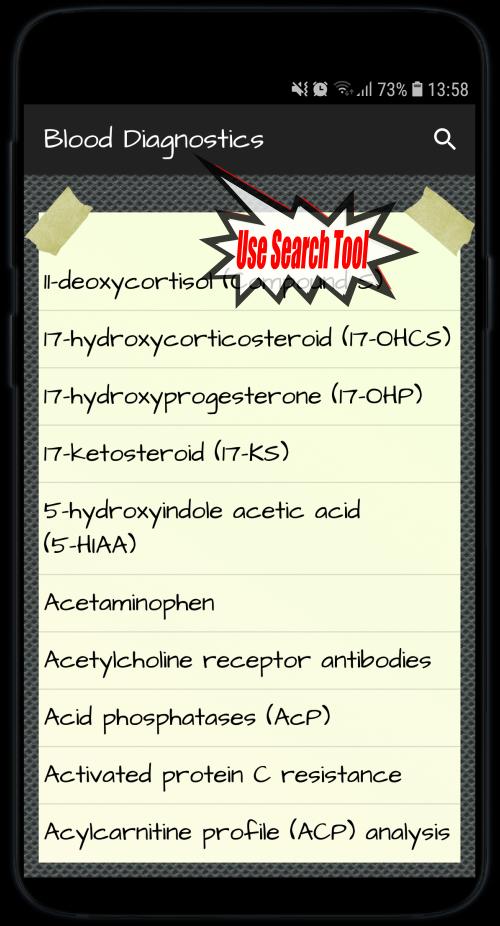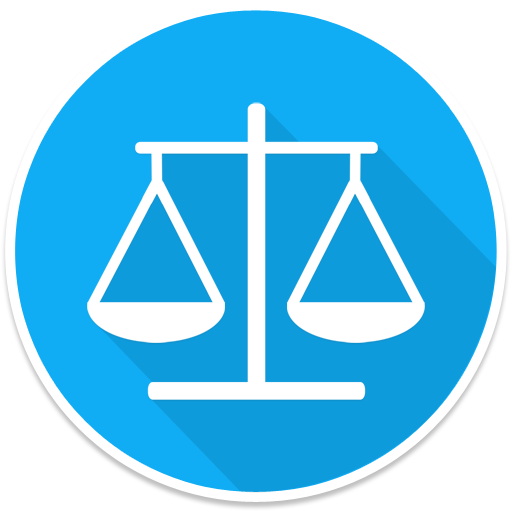Reference ranges for blood tests. A must have compendium for med professionals.
Blood Diagnostics provides descriptions and explanations of over 300 laboratory blood tests. It is a perfect pocket guide for all healthcare professionals, including medical students, graduates, and nurses. Blood Diagnostics makes blood results interpretation easy to read and understand. User friendly interface provides all information in clear manner. You can either click on a specific organ to find a test or use a search tool containing a long list of tests neatly organised in alphabetical order. Finding useful information couldn’t be easier. Colour-coded categories allow you to easily navigate between tests, and help memorizing the reference values and relevant clinical details. Each test provides a brief description along with reference range (in metric or imperial units) and thorough interpretation. All you may need at your fingertips.
Blood Diagnostics App is a must have for all healthcare professionals available to download for free. Easy to use and very intuitive. It doesn’t require an account or registration. Works offline straight out of the box on all android devices giving you a quick access to a continuously growing database.
Blood Test Results: Blood TestsBlood tests are a common part of medical care. They can be used to check for a variety of health conditions, including anemia, infection, and diabetes. Blood tests can also be used to monitor the effectiveness of treatment.
There are many different types of blood tests. Some of the most common include:
* Complete blood count (CBC): A CBC measures the number of red blood cells, white blood cells, and platelets in your blood. It can be used to diagnose anemia, infection, and other blood disorders.
* Comprehensive metabolic panel (CMP): A CMP measures the levels of various chemicals in your blood, including glucose, electrolytes, and liver enzymes. It can be used to diagnose diabetes, kidney disease, and other metabolic disorders.
* Lipid panel: A lipid panel measures the levels of cholesterol and triglycerides in your blood. It can be used to diagnose high cholesterol and other lipid disorders.
Blood tests are typically performed in a doctor's office or laboratory. A small sample of blood is drawn from a vein in your arm. The blood is then sent to a laboratory for analysis.
The results of your blood test will be sent to your doctor. Your doctor will review the results and discuss them with you. If your blood test results are abnormal, your doctor may order additional tests or recommend treatment.
Blood tests are a valuable tool for diagnosing and monitoring health conditions. They can help your doctor make informed decisions about your care.
Here are some additional tips for getting the most out of your blood test:
* Fast for 8-12 hours before your blood test. This will help to ensure that your blood sugar levels are stable.
* Drink plenty of water before your blood test. This will help to keep your veins hydrated and make it easier to draw blood.
* Tell your doctor about any medications you are taking. Some medications can interfere with blood test results.
* If you have any questions about your blood test results, be sure to ask your doctor.
Reference ranges for blood tests. A must have compendium for med professionals.
Blood Diagnostics provides descriptions and explanations of over 300 laboratory blood tests. It is a perfect pocket guide for all healthcare professionals, including medical students, graduates, and nurses. Blood Diagnostics makes blood results interpretation easy to read and understand. User friendly interface provides all information in clear manner. You can either click on a specific organ to find a test or use a search tool containing a long list of tests neatly organised in alphabetical order. Finding useful information couldn’t be easier. Colour-coded categories allow you to easily navigate between tests, and help memorizing the reference values and relevant clinical details. Each test provides a brief description along with reference range (in metric or imperial units) and thorough interpretation. All you may need at your fingertips.
Blood Diagnostics App is a must have for all healthcare professionals available to download for free. Easy to use and very intuitive. It doesn’t require an account or registration. Works offline straight out of the box on all android devices giving you a quick access to a continuously growing database.
Blood Test Results: Blood TestsBlood tests are a common part of medical care. They can be used to check for a variety of health conditions, including anemia, infection, and diabetes. Blood tests can also be used to monitor the effectiveness of treatment.
There are many different types of blood tests. Some of the most common include:
* Complete blood count (CBC): A CBC measures the number of red blood cells, white blood cells, and platelets in your blood. It can be used to diagnose anemia, infection, and other blood disorders.
* Comprehensive metabolic panel (CMP): A CMP measures the levels of various chemicals in your blood, including glucose, electrolytes, and liver enzymes. It can be used to diagnose diabetes, kidney disease, and other metabolic disorders.
* Lipid panel: A lipid panel measures the levels of cholesterol and triglycerides in your blood. It can be used to diagnose high cholesterol and other lipid disorders.
Blood tests are typically performed in a doctor's office or laboratory. A small sample of blood is drawn from a vein in your arm. The blood is then sent to a laboratory for analysis.
The results of your blood test will be sent to your doctor. Your doctor will review the results and discuss them with you. If your blood test results are abnormal, your doctor may order additional tests or recommend treatment.
Blood tests are a valuable tool for diagnosing and monitoring health conditions. They can help your doctor make informed decisions about your care.
Here are some additional tips for getting the most out of your blood test:
* Fast for 8-12 hours before your blood test. This will help to ensure that your blood sugar levels are stable.
* Drink plenty of water before your blood test. This will help to keep your veins hydrated and make it easier to draw blood.
* Tell your doctor about any medications you are taking. Some medications can interfere with blood test results.
* If you have any questions about your blood test results, be sure to ask your doctor.

